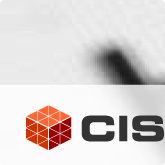Being interested in the functioning of organizations as complex systems, from time to time I like to get into the debate about how much organizations are like organisms. Some people have gone so far as to say that organizations *are* organisms, while other people take the approach that there are useful analogies to be made between the two, but that’s as far as it goes. I can certainly say that in my own work I find drawing analogies between the two to be extremely useful, but I’ve always been reluctant to go farther than that- there’s no doubt that organizations and organisms are both complex systems, but I’m not sure if one is really a type of the other.
Having said that, I’m currently reading “The Superorganism: The Beauty, Elegance, and Strangeness of Insect Societies” by Bert Hölldobler and Edward O. Wilson and I find that I’m quite intrigued by the notion of super organisms and how this concept might be related to human organizations. I was familiar with the concept prior to reading the book, but Hölldobler and Wilson give some excellent detailed examples of the inner workings of a super organism that make the concept much more tangible and concrete. Coming out of the more specific data they present, I can see many interesting similarities between human organizations and social insect super organisms, particularly with respect to the communication systems present in both, so I think I’ll be investigating these similarities a bit more rigorously in the future.








